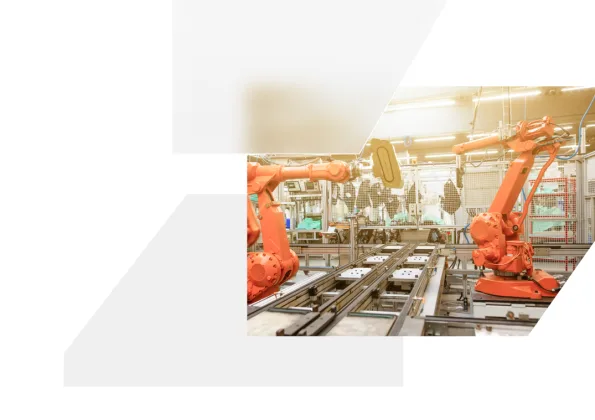
Automotive & Industrial Consulting
NEW YORK (January 31, 2025) – The automotive sector has emerged as the most disrupted major industry according to CEOs and other senior executives polled by AlixPartners in its annual review of the forces shaping the global economy.
Autos leapfrogged sectors including healthcare, technology and financial services in the 2025 AlixPartners Disruption Index, with CEOs and other high-level executives flagging the challenges of navigating the uneven growth of electric powertrains, automated-driving technologies, and reconfigured supply networks.
The Disruption Index for the auto industry climbed to 76.7 on a scale of 0 to 100, up 4.7 points from last year, according to the canvass of 3,200 executives which included more than 300 auto-industry executives, including leaders at OEMs, suppliers, dealers and service providers. That reversed two consecutive years of improvement.
The most pronounced increases in disruption came among executives involved in the aftermarket and shared-mobility and fleet sectors of automotive, but increasing disruption was also evident among suppliers, dealers, and OEMs.
The biggest reported concern for OEMs and suppliers is the forces at work on supply chains, even as pandemic-driven constraints disappear from the rearview mirror. The cost of materials and components were the most challenging for a third of these executives, more concerning that either tariffs and protectionism, or the availability and reliability of suppliers.
“A lack of real-time visibility into supply chains remains a big problem and makes it tough for executives to prioritize action,” said Dan Hearsch, Americas leader the automotive and industrial practice at AlixPartners. “And that’s why companies today need a deep and thorough understanding of their true current states and the options before them more than ever before.”
Other areas of concern include inflation and high interest rates, which have affected pricing and demand. A large percentage of automotive executives overall said they still planned to invest in China, but nearly 70% indicated they are scaling more in other geographies. Additionally, almost 70% also said they expect to pursue transformational M&A opportunities this year in an effort to harness disruptive forces, a proportion topped only by executives from the technology industry. With the outcome of tariff decisions and potential retaliatory actions yet to play out, geopolitical tensions along with changing market structures was evident in survey results when it came to issues surrounding China. More than two-thirds of auto executives globally said they planned to adjust their growth strategies in response to US-China tensions. Still, few executives were concerned about the complexity and cost of directing more investment away from China or losing access to its domestic market.
While the potential impact of tariffs and other protectionist measures is present after the US Presidential election, a shortage for key engineering and other skilled talent is also vexing automotive executives. More than half of automotive respondents said they were worried about their company’s existing strategy to attract top talent. That’s far more than any other industry surveyed.
“The candid acknowledgement of workforce concerns is all the more telling given that the industry executives generally lauded their talent-management skills and corporate cultures,” said Stephen Tapley, a partner in the automotive and industrial practice at AlixPartners. “Clearly, the auto industry has a skills gap – especially as the automotive and technology industries converge – and it’s a gap that in general the auto industry is not filling internally.”
Notably, embracing more artificial intelligence (AI) and software-defined functionality was viewed primarily as a revenue-generating opportunity by a majority of automotive executives in the survey, rather than a method to just cut costs. Likewise, while autonomous-vehicle and driver-assistance technologies were seen as leading disruptive forces, those technologies were also viewed as offering the most opportunities for adoption to advance automotive organizations. Still, a large number of survey respondents indicated that AI tools raise concerns with legal and regulatory compliance, and said they worry that an over-reliance on AI may reduce the critical thinking and problem-solving among employees.
About the 2025 AlixPartners Disruption Index
The 2025 AlixPartners Disruption Index provides a measure of disruption, based on both magnitude and frequency. The 2025 survey on which the Index is based asked CEOs and other senior executives across 10 industries and 11 countries the degree to which their business is being disrupted, the various forces impacting them, the pace at which disruptive forces are accelerating and the strategies they are employing to confront them. The survey was conducted August 14 through September 30, 2024, utilizing responses from 3,200 business executives ages 25 to 65 years, employed at director level or above and working for a company with at least $100 million in annual revenue. This included 320 automotive executives.
About AlixPartners
AlixPartners is a results-driven, global consulting firm that specializes in helping businesses successfully address their most complex and critical challenges. Our clients include companies, corporate boards, law firms, investment banks, private-equity firms, and others. Founded in 1981, AlixPartners is headquartered in New York City, and has offices around the world. For more information, visit www.alixpartners.com.
Contact:
Tim Yost
+1.248.227.1694
[email protected]